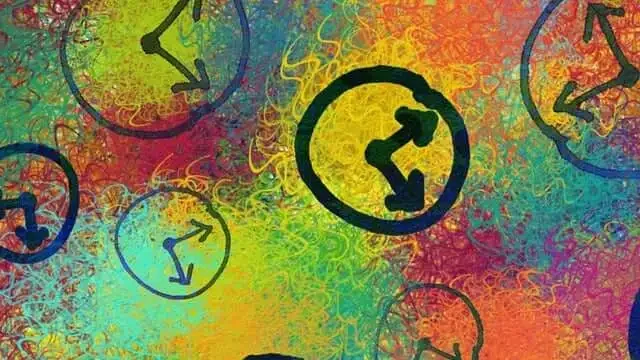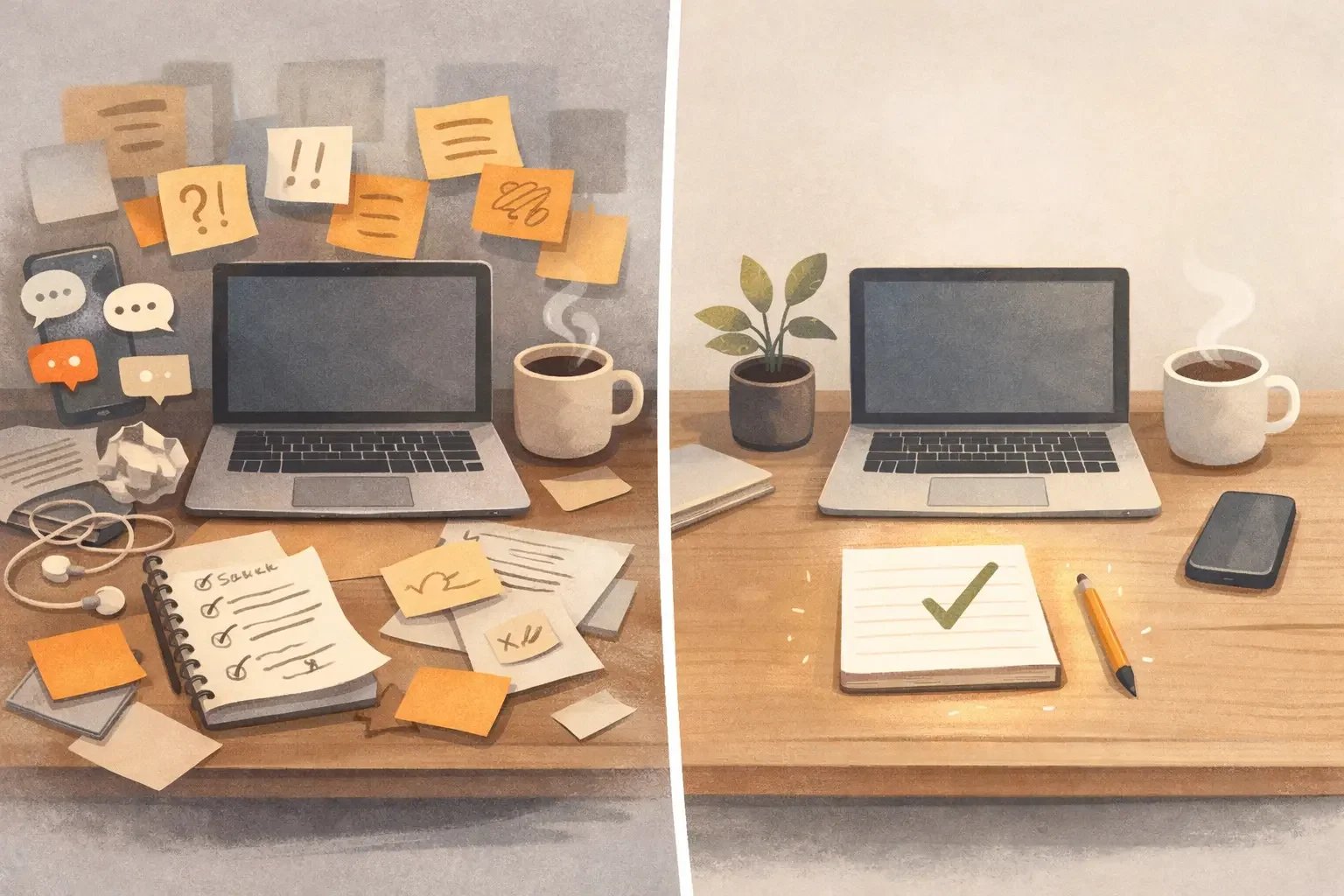Do I Have ADHD?
Symptoms and Evaluation Options in Gainesville
If you’re wondering whether you might have ADHD, you’re not alone.
Maybe you feel overwhelmed a lot.
Maybe you procrastinate even when something matters.
Maybe your focus comes and goes in unpredictable waves.
If you’d like a fuller picture of how ADHD counseling works, you can start here: ADHD Therapy in Gainesville →
Quick Signs You Might Have ADHD
Here are some simple patterns many people notice:
Trouble starting tasks and staying on track
Losing time or forgetting what you just read
Getting distracted easily or avoiding boring tasks
Swinging between hyperfocus and no focus
Feeling overwhelmed or emotionally flooded quickly
These don’t automatically mean ADHD.
But they are common ADHD-related experiences.
What ADHD Often Feels Like:
“ADHD is lying on the couch scrolling on my phone, fully aware I have something important tomorrow, feeling more anxious by the minute, and still not being able to make myself start.”
“Some days a simple list like laundry, groceries, short walk really is my whole day. My brain just runs out of gas way sooner than people think.”
“It feels like there are only a few usable hours in the day. If I miss that tiny window of focus, the whole day feels lost.”
Many people see these quotes and think, “wait… that’s me.”
Relating to these doesn’t confirm ADHD, but it can be a useful signal to look closer.
It isn’t laziness. For many people, it’s a nervous system and attention style that struggles with low-stimulation tasks and constant demands.
In counseling, we sort through what you’re experiencing and discuss whether a formal ADHD evaluation is something you’d like to pursue.
A Simple First Step for Gainesville Adults Who Wonder About ADHD
The Adult ADHD Self-Report Scale
If you’ve been struggling with focus, organization, procrastination, or restlessness, the ASRS is a quick way to check whether your symptoms resemble common ADHD-related patterns (Study, 2025). It doesn’t diagnose ADHD on its own, but it can give you helpful insight before you decide whether to pursue a full evaluation.
Why this matters
The ASRS is widely used because it’s quick, research-based, and aligns with common adult ADHD symptom patterns used in clinical assessment.
If the screening suggests similarities with ADHD-related patterns, the next step is a full evaluation that looks at childhood history, daily functioning, and rules out other causes like anxiety, depression, or sleep issues.
How it works
The ASRS has eighteen total questions. The first six are often considered the most informative in research on adult ADHD.
Below is a paraphrased version of the first six questions so you can get a sense of the kinds of questions it includes.
Each item has the same response options:
Never
Rarely
Sometimes
Often
Very often
The six core questions
How often do you have trouble finishing tasks you start?
How often do you struggle to keep things organized or in order?
How often do you forget appointments, deadlines, or responsibilities?
How often do you delay or avoid tasks that take a lot of mental effort?
How often do you feel restless or find yourself fidgeting?
How often do you feel overly active or unable to relax?
How to read your results
Screeners can be affected by stress, sleep, anxiety, burnout, and life context. Use this as a conversation starter, not a conclusion.
If several of your responses fall in the ‘often’ or ‘very often’ range, that may indicate similarities with ADHD-related patterns.
This doesn’t mean “you have ADHD.”
It means the pattern is strong enough that a proper evaluation may help clarify what is going on.
What a full ADHD evaluation looks like
A provider will look at:
Your childhood history
How symptoms show up at work, school, and home
Sleep, anxiety, depression, trauma, or medical factors
How much these challenges genuinely affect your daily life
Only a qualified licensed clinician can diagnose ADHD.
Why It’s Hard to Tell
ADHD can overlap with:
Stress
Anxiety
Burnout
Sleep issues
Digital overstimulation
Sometimes these patterns relate to ADHD. Sometimes they come from stress or overwhelm. Sometimes it’s a mix.
What We Explore Together in Therapy
Day-to-day patterns and what feels overwhelming
How motivation, focus, and procrastination show up
Tools and strategies that may support your daily routines
How your experiences line up with ADHD-related patterns and whether an evaluation is something you’d like to consider
You don’t need a diagnosis to begin exploring what’s going on.
ADHD Evaluation Options in Gainesville
If you want formal testing, I can share local referral options in my building and the Gainesville community.
Evaluations are typically done by:
• Psychologists
• Medical providers
• Local testing centers
What to expect from an evaluation:
• A conversation about your history
• Questionnaires
• Sometimes cognitive or attention testing
You’re not required to get tested.
It’s simply one available option.
How Counseling Can Help
You don’t need a diagnosis to begin exploring what’s going on. Counseling can help you clarify patterns, reduce overwhelm, and experiment with small, realistic changes. It can also help you decide whether a formal evaluation feels like the right next step.
Here’s what working together can look like:
A calm space to talk through what you’re noticing without being judged
Clear next steps, including local Gainesville evaluation referral options if you want testing
Support in Gainesville or through secure telehealth anywhere in Florida
You’re welcome to schedule a session or a brief consultation if you’d like help sorting through what you’re noticing.
Further Reading
Prefer to learn more before deciding? Here are a few helpful reads:
ADHD Therapy in Gainesville →
A full overview of ADHD counseling and support options.ADHD and Technology →
How screens and digital overload can amplify ADHD-like patterns.DBT Skills Guide for ADHD →
A practical guide to DBT-informed skills you can use when emotions escalate or thinking narrows.
FAQ
Can a therapist tell me if I have ADHD?
A therapist can help you talk through your experiences, notice patterns, and explore whether they line up with ADHD-related traits.
A formal diagnosis is made by a qualified licensed clinician, often a psychologist or a medical provider. Testing centers may also provide evaluations. If you’re interested in an evaluation, I can share local Gainesville options.
What are the most common signs of ADHD in adults?
Many adults describe:
• trouble starting tasks
• losing track of time
• forgetfulness
• overwhelm or emotional intensity
• switching between hyperfocus and no focus
These patterns can look different from childhood ADHD, which is why many adults aren’t identified earlier.
How do I know if I should get an ADHD evaluation?
An evaluation may be worth considering if you:
• have struggled with focus for many years
• often feel behind or overwhelmed
• feel like everyday tasks take more energy than they “should”
• aren’t sure whether it’s ADHD, anxiety, or something else
Therapy offers a space to sort through whether testing feels right for you.
Where can I get tested for ADHD in Gainesville, Florida?
Evaluations are typically completed by psychologists or medical providers, and some testing centers also offer evaluations. If you want local options, I can share local referral options in Gainesville.
Do I need an ADHD diagnosis before starting counseling?
No. Many people begin counseling first and choose later whether they want a formal evaluation.
Therapy can be useful with or without a diagnosis.
Can adults develop ADHD later in life?
ADHD doesn’t suddenly appear in adulthood, but life stress, burnout, parenting demands, work pressure, or digital overstimulation can make longstanding patterns more noticeable.
Many adults realize the signs were always there but never identified.
Is ADHD the same as being distracted or unmotivated?
No. ADHD affects how attention, task initiation, emotions, and time awareness show up.
It’s not laziness or lack of effort.
Can ADHD-like symptoms be caused by anxiety or burnout instead?
Yes. Anxiety, burnout, depression, sleep issues, and digital overstimulation can all create patterns that look similar to ADHD.
Therapy gives you space to explore what might be contributing to what you’re experiencing.
What if I relate to ADHD symptoms but don’t want medication?
Medication is one option—not a requirement.
Many people focus on therapy strategies, routines, and practical tools.
You can choose the approach that feels right for you.
What does ADHD-focused counseling look like?
Counseling may include:
• time and task-management approaches
• experimenting with realistic routines
• talking through overwhelm or emotional intensity
• breaking tasks into smaller steps
• exploring ways to organize your day
• supportive check-ins and structure
These approaches can be useful with or without a formal diagnosis.


